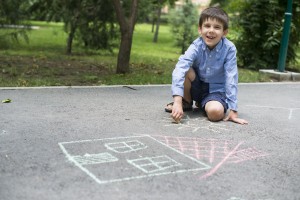 How to effectively raise your child’s self esteem and make them more confident when they are doing well and when they are not doing well-through healthy praise and effective criticism.
How to effectively raise your child’s self esteem and make them more confident when they are doing well and when they are not doing well-through healthy praise and effective criticism.
Confidence and self-esteem are key ingredients in a healthy and happy child. Teaching a child to have self-confidence is an important task parents have from the very beginning of a child’s life.
Having a high level of confidence and self-esteem will help children get along well with others and believe they are worthy of having healthy and loving relationships as they mature.
What is the difference between self esteem and confidence?
Self-esteem is how your child feels about themselves overall. It means they see themselves in a realistic and positive light and have self-love.
Confidence is how your child feels about their abilities in various situations. Your child may have self-esteem overall but have low confidence in something like math.
If your child is struggling with either one of these then some of the tips below can help you.
Why are confidence and self-esteem important?
There is convincing evidence that people with high self-esteem and confidence are happier, as well as more likely to undertake difficult tasks and persevere in the face of failure.
What contributes to healthy self-esteem and confidence?
Be realistic based on developmental stage and individual personality and abilities.
Childhood experiences that contribute include:
- Being listened to
- Being spoken to respectfully
- Getting appropriate attention and affection
- Having accomplishments be recognized and mistakes or failures be acknowledged and accepted
Ways to build self-esteem and confidence in children.
Praise Enthusiastically and Genuinely
When a parent genuinely and enthusiastically gives attention to something they like that their child did, the child is going to feel happy that their parent is proud of them. This will result in the child feeling confident in themselves and proud that they engaged in a behavior that their parent is genuinely proud of.
*Tip: If your child is sharing a toy with their sibling or peer, say, “I love how you are sharing with your brother! It makes me so proud to see that you are thinking about his feelings!”
Teach Problem Solving
When children know how to solve problems on their own, it helps them conquer difficult situations independently. Depending on a child’s age, they will need some guidance to solve bigger problems. Modeling appropriate reactions to problems is the best way your child can learn how to solve every day problems.
*Tip: Model problem solving while using child-friendly language (i.e. big vs. little problem). For example, when a cup spills and water goes on the floor and on your clothing say, “this is a small problem, I’m going to get a napkin and wipe up the water.” If you burn your finger while cooking dinner say, “this is a big problem, I’m going to need to get medicine for my finger.”
Set Your Child Up For Success
Encourage your child to participate in activities that he or she is interested in or has natural talents in. Teach your child that they are a unique individual and they will benefit from enhancing themselves based on their instinctive abilities and desires. When a child’s skills improve, their confidence increases.
*Tip: Watch and observe your child in order to understand what their innate interests are. Once you determine something they are interested in or curious about, encourage them to partake in a class or group about that topic.
Resist Comparisons
It is easy to make comparisons from child to child by looking around a room filled with kids and saying, “Why can’t you be as calm as Johnny?” or “Why can’t you sit up straight like Sarah?” Comparing your child to another child will make them feel badly about themselves, instead of increasing their confidence by giving them a compliment or praising them for a behavior that you liked.
*Tip: When you feel like you want to compare your child to another child, think to yourself, “I’m lucky that this is my child. He/she is so great at x,y,z and no child is perfect.”
Give Your Child Responsibilities
Giving responsibility to a child helps them feel more valuable and helpful in their home and community. When a child feels that they are valuable, their confidence will boost.
*Tip: Responsibilities should vary depending on your child’s age and cognitive level of functioning. For younger children, choose easier and more manageable tasks while for older children you can choose tasks with increased difficulty.
Here are some to consider: Putting laundry in laundry basket, helping fold and put away laundry, washing dishes, unloading dishwasher, feeding and walking pet, putting toys away, setting table, light meal prep, putting groceries away, getting the mail, help prepare lunch to take to school etc.
*Tip: If you make a big deal about the job you are giving to your child, it will be even more exciting for your child to complete that task. For example, tell your child that the task is “special”.
*Tip: Create a “job chart” to help your child know what his or her jobs are. You can create a visual representation of the task if a child is too young to read.
- Praise: focus on what you see the child doing, rather than with a totalizing phrase. (maybe mention some research as to why this is important?)
- Being genuine
- Being specific-describe what you see with appreciation
- Giving your child a 1-2 word phrase to describe the trait he has just shown so that next time he can praise himself with it
- Catching your kids being good
- Saving some praise for later-mention at the dinner table how Johnny helped you put away all the toys earlier in the day
- Criticism: describe what you see and what needs to be done





